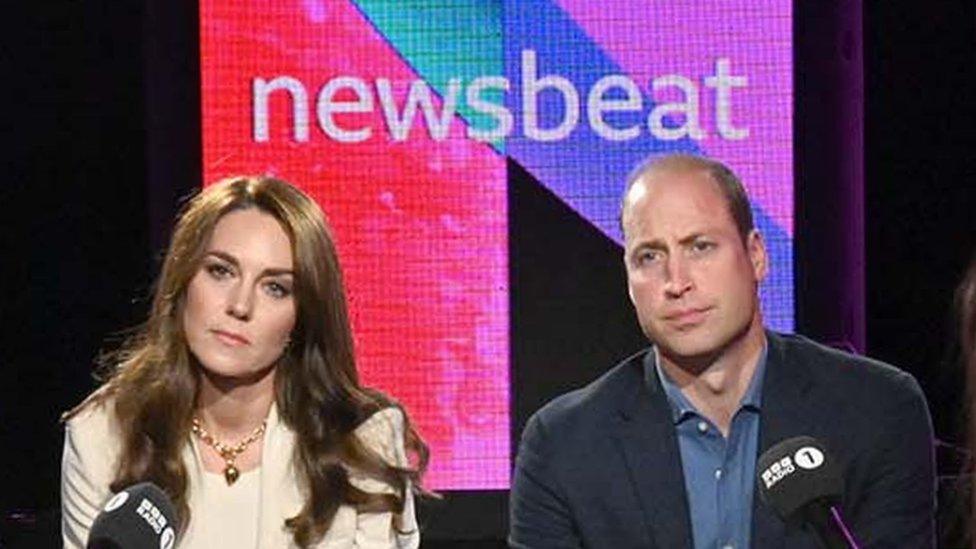Badshah: Bollywood rapper says fame can be uncomfortable
- Published
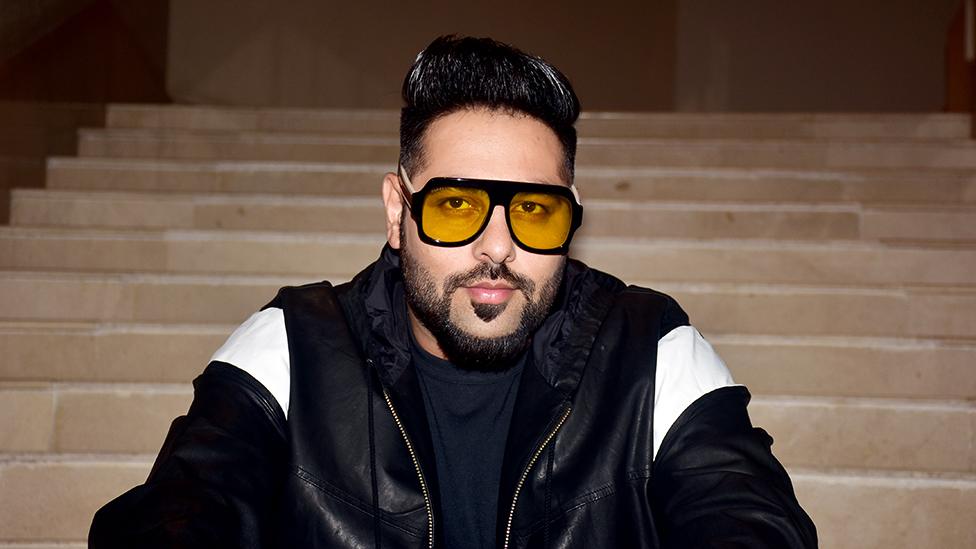
Badshah's songs and collaborations have charted multiple times in the Official Asian Music Chart
If you're dancing along to bangers at a Bollywood club night, chances are there'll be a song by Badshah.
The rapper has dominated the Indian music scene for almost a decade, with hits such as Abhi Toh Party Shuru Hui Hai, Kala Chashma and Baby Ko Bass Pasand Hain.
You might think the man with the "it's your boy Badshaaah" catchphrase would be "the happy guy" at the heart of any party.
But he admits the attention is hard.
"You will never find me in the centre of room, you will always find me in the corner," he tells BBC Asian Network.
"I love the fact that a lot of people love me and I feel the love. But the fame is just a little uncomfortable."
The 37-year-old has had multiple hits in the UK's Official Asian Music Chart and starts his UK tour in London later on Saturday, but he's bigger than just his music.
He's also regularly seen in TV adverts, social media campaigns and even hosting talent shows.
'I talk about my demons'
That rise though, has not been smooth sailing. Instead, he admits struggling with his mental health and says he wishes he'd sought professional help much earlier than he did.
"Therapy is important and you need to realise that it's OK, it's absolutely OK," the Delhi-born musician says.
Badshah - real name Aditya Prateek Singh Sisodia - says he has suffered from clinical depression and anxiety disorder, which required being put on medication.
Talking about mental health isn't the easiest thing in South Asian communities, where the issue is often considered taboo.
But Badshah feels getting treatment should be as easy as it is to apply a plaster on a cut.
"What is there not to talk about?" he says.
"The strength is to accept that there is something wrong, and if there is something wrong then let's make it right."
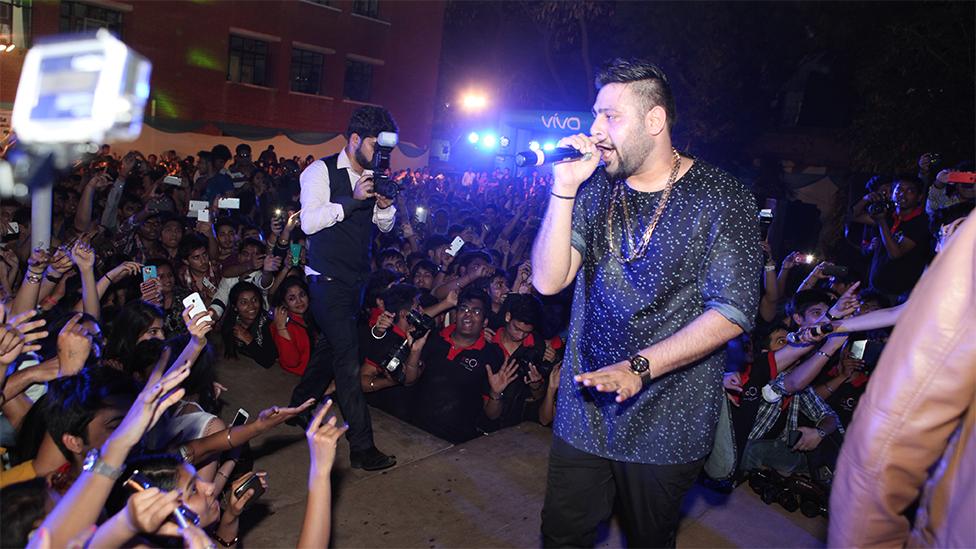
The rapper says Drake has been one of the "biggest influences on him because I relate to him so much"
Badshah says music has become an avenue, alongside his treatment, that allows him to release his thoughts.
He realised this on a flight back from London in 2014, when he says he experienced a panic attack.
"I thought it was a heart attack because there were a lot of palpitations," he says.
"I took my phone out, I started writing. Within the next 15 minutes, I was fine. And that's when I knew, it's music.
"It helps whenever I go through something, I just write."
While he is best known for his party tracks, Badshah says he's "absolutely naked emotionally" on songs like Focus and Ghar Se Door from his 2020 album The Power of Dreams of a Kid.
He believes this openness has allowed him to connect with his "real fans".
"I'm extremely vulnerable, where I talk about the demons," he says.
"I want to let people know."
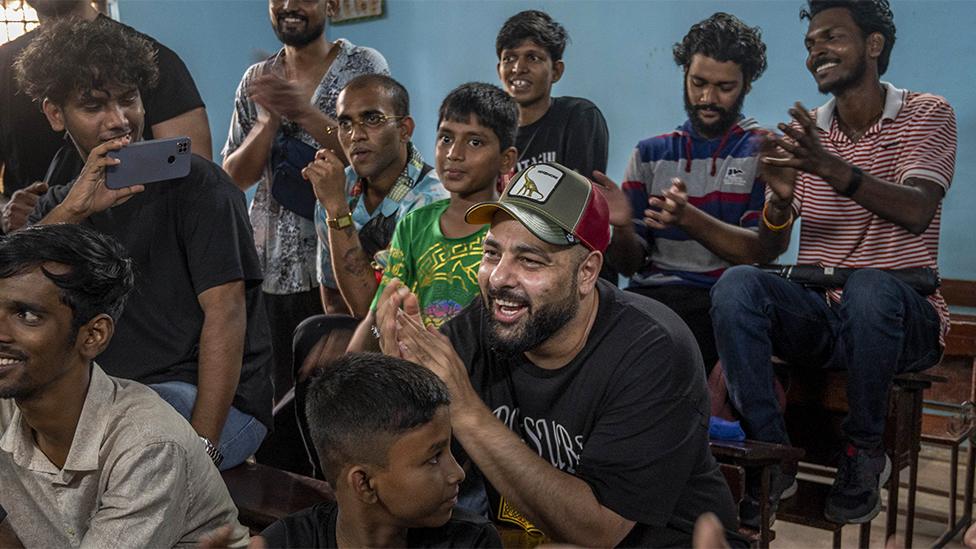
Badshah says he's very passionate about using his position to do good - such as supporting children's education
India - the world's largest democracy - has been criticised for restricting freedom of speech, and public figures have also found themselves under fire for comments on contentious issues.
Badshah says it's important to understand your words can be interpreted in different ways.
"As an artist, sometimes you do not realise the impact that you have is both positive and negative," he says.
"At the end of the day, you're a responsible citizen, so you have to take care of a lot of things."
The rapper says his "primary objective is to entertain", and he prefers to use his influence on issues that matter to him, such as children's education and climate change.
"Which is also good karma," he says.
"If I do that successfully, I'm happy."
With many of India's vast population being fans and with global recognition, it can be tough to live a fairly peaceful life, so how does Badshah get away from his relentless schedule?
"With my parents, maybe go to the Himalayas in the mountains, and listen to Coldplay - that's bliss," he says.
"Give me a week of that and take a year from me."
Listen back to Ankur Desai's hour-long special BBC Asian Network programme with Badshah on BBC Sounds.


Related topics
- Published29 August 2023
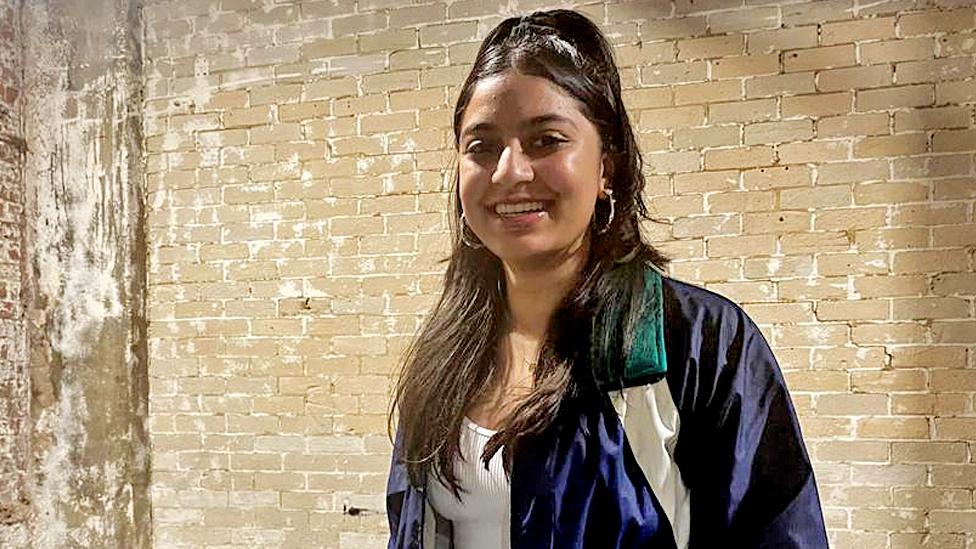
- Published14 June 2022
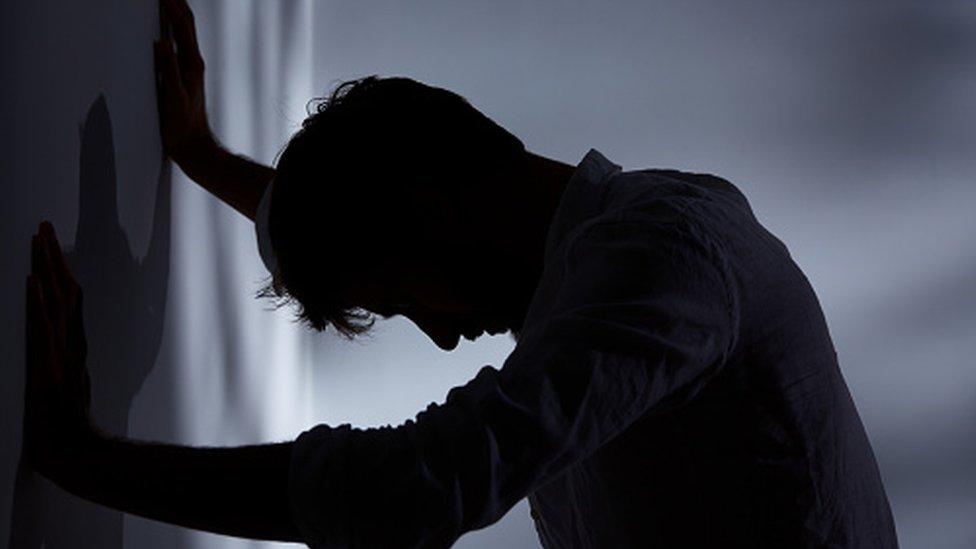
- Published11 October 2022
